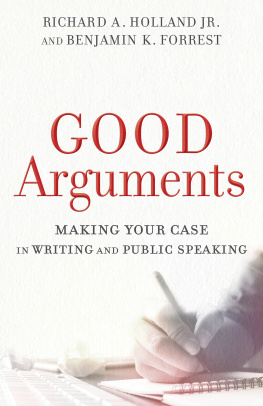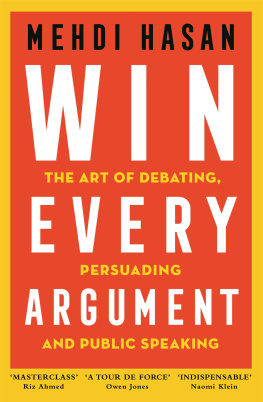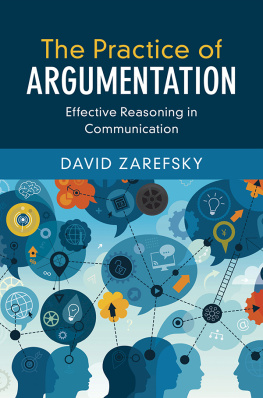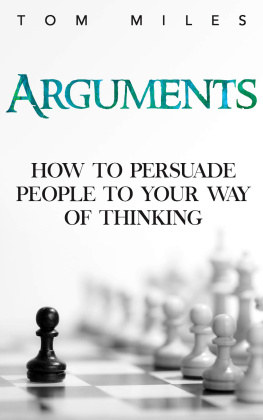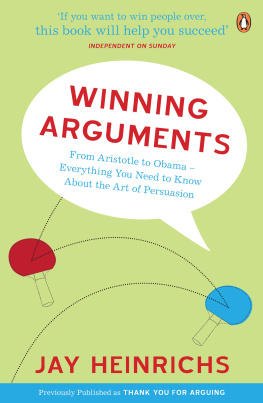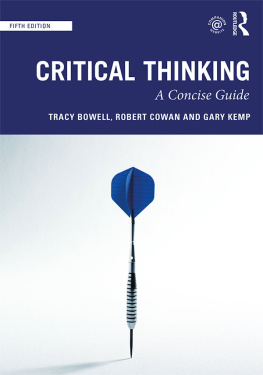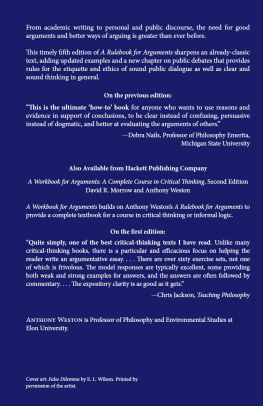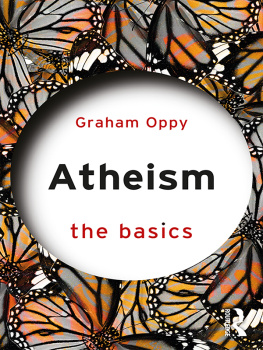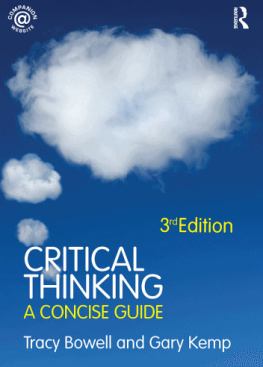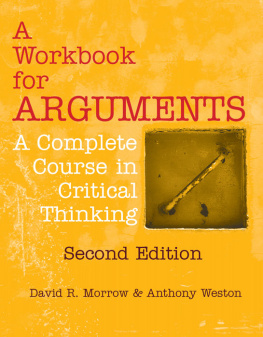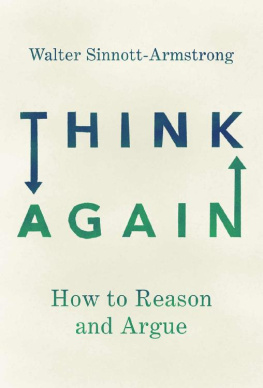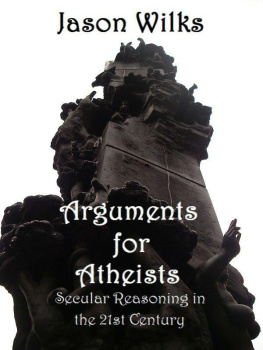Richard A. Jr. Holland - Good Arguments: Making Your Case in Writing and Public Speaking
Here you can read online Richard A. Jr. Holland - Good Arguments: Making Your Case in Writing and Public Speaking full text of the book (entire story) in english for free. Download pdf and epub, get meaning, cover and reviews about this ebook. year: 2017, publisher: Baker Publishing Group, genre: Religion. Description of the work, (preface) as well as reviews are available. Best literature library LitArk.com created for fans of good reading and offers a wide selection of genres:
Romance novel
Science fiction
Adventure
Detective
Science
History
Home and family
Prose
Art
Politics
Computer
Non-fiction
Religion
Business
Children
Humor
Choose a favorite category and find really read worthwhile books. Enjoy immersion in the world of imagination, feel the emotions of the characters or learn something new for yourself, make an fascinating discovery.
- Book:Good Arguments: Making Your Case in Writing and Public Speaking
- Author:
- Publisher:Baker Publishing Group
- Genre:
- Year:2017
- Rating:4 / 5
- Favourites:Add to favourites
- Your mark:
- 80
- 1
- 2
- 3
- 4
- 5
Good Arguments: Making Your Case in Writing and Public Speaking: summary, description and annotation
We offer to read an annotation, description, summary or preface (depends on what the author of the book "Good Arguments: Making Your Case in Writing and Public Speaking" wrote himself). If you haven't found the necessary information about the book — write in the comments, we will try to find it.
Good Arguments: Making Your Case in Writing and Public Speaking — read online for free the complete book (whole text) full work
Below is the text of the book, divided by pages. System saving the place of the last page read, allows you to conveniently read the book "Good Arguments: Making Your Case in Writing and Public Speaking" online for free, without having to search again every time where you left off. Put a bookmark, and you can go to the page where you finished reading at any time.
Font size:
Interval:
Bookmark:
2017 by Richard A. Holland Jr. and Benjamin K. Forrest
Published by Baker Academic
a division of Baker Publishing Group
P.O. Box 6287, Grand Rapids, MI 49516-6287
www.bakeracademic.com
Ebook edition created 2017
All rights reserved. No part of this publication may be reproduced, stored in a retrieval system, or transmitted in any form or by any meansfor example, electronic, photocopy, recordingwithout the prior written permission of the publisher. The only exception is brief quotations in printed reviews.
Library of Congress Cataloging-in-Publication Data is on file at the Library of Congress, Washington, DC.
ISBN 978-1-4934-1089-7
Scripture quotations are from The Holy Bible, English Standard Version (ESV), copyright 2001 by Crossway, a publishing ministry of Good News Publishers. Used by permission. All rights reserved. ESV Text Edition: 2011
To Larissa,
for your unending patience and love.
RAH
To Reagan, Hudson, and Graham,
with prayers that you spend your life sharing Christ
through your actions, love, and arguments.
BKF
Cover
Title Page
Copyright Page
Dedication
Acknowledgments
Introduction: Why Arguments Are Good
1. The Basics of Good Arguments
2. Reasoning and Logic
3. Fallacies
4. Belief, Fact, and Opinion
5. Defining Your Terms
6. Drawing Analogies
7. Cause and Effect
8. On Good Authority
9. Making Your Case
Case Studies
Glossary
Index
Back Cover
As with any project, there are many individuals behind the scenes who helped bring this book to fruition. We would first like to thank the entire Baker Academic team, especially R. David Nelson, David Cramer, Steve Ayers, Jeremy Wells, and freelance editor Ryan Davis. Their encouragement gave us the ability to take on this project and see it through to completion. In addition we would like to thank Christopher P. Davis, Ronnie Campbell, Christopher Bosson, and Josh Erb for feedback on the case studies. Their insight and critique were helpful and encouraging.
Rich would like to thank his wife, Larissa, for her loyalty and encouragement. He also wishes to thank his dear friends Daphne and Gene Woodall for providing their home as a writing retreat, for their constant love and encouragement, and for being family.
Ben would like to thank his wife, Lerisa, for her constant encouragement and for listening to the formation and planning of this text with patience and interest. Her constant encouragement is a blessing and a gift!
Lastly, we would like to thank the Lord for calling us to know him and share him with the world. We pray that our experiences can be invested into the body for the equipping of the saints for the work of the ministry unto Gods glory.
Why Arguments Are Good
Argument is a word that is easily misunderstood. For many of us, hearing this word brings to mind something unpleasant or something we try to avoid. When a friend comes to you saying that she has recently been in an argument with an acquaintance, this is typically bad news. It involves dispute, conflict, disagreement, heightened emotions, and stress. This may be your initial reaction if you are reading this book as an assignment for a class. Thankfully, this book is not about verbal disputes, fights, emotional disagreements, or shouting matches. The word argument , as we are using it, simply refers to the process of giving reasons or evidence in support of a belief or claim. An argument is a series of statements: a claim and one or more additional statements given as reasons that we should think the claim is true. The main claim being made is usually called the conclusion (even though the conclusion often comes at the beginning of an argument, rather than at the end). Each statement that supports the conclusion is called a premise . While no set number of premises is required in an argument, there must be at least one. So, at a minimum, an argument is composed of at least two statements: the conclusion and at least one premise that supports the conclusion.
One can hardly pick up a textbook introducing philosophy or logic without hearing about the ancient Greek philosopher named Socrates. These books often use Socrates in demonstrating what an argument looks like, as follows:
All men are mortal.
Socrates is a man.
Therefore, Socrates is mortal.
The first two statements are the premises of this particular argument; they are given as evidence supporting the truth of the last statement. The last statement is the conclusion. Of course, when the statements are arranged and presented in this form, it is easy to identify the premises and the conclusion, but in everyday conversation, people rarely make their premises and conclusion this clear. Instead, someone might say, Socrates is mortal. After all, he is only a man! When the statements are arranged in this way, it might be more difficult for you to identify the premises and the conclusion, but it is an argument nonetheless.
You might be surprised to learn that even the Bible makes use of arguments. Consider this familiar story from Matthew 12:914:
[Jesus] went on from there and entered their synagogue. And a man was there with a withered hand. And they asked him, Is it lawful to heal on the Sabbath?so that they might accuse him. He said to them, Which one of you who has a sheep, if it falls into a pit on the Sabbath, will not take hold of it and lift it out? Of how much more value is a man than a sheep! So it is lawful to do good on the Sabbath. Then he said to the man, Stretch out your hand. And the man stretched it out, and it was restored, healthy like the other. But the Pharisees went out and conspired against him, how to destroy him.
In this encounter between Jesus and his detractors, Jesus gives an argument in response to the question from the Pharisees. The main points of his argument can be summarized as follows:
It is lawful to help a sheep out of a pit on the Sabbath.
A man is much more valuable than a sheep.
Therefore, it is lawful to heal a man on the Sabbath.
The Pharisees asked Jesus the simple question: Is it lawful to heal on the Sabbath? Jesuss answer is obviously yes. But Jesus doesnt simply answer the question. Instead, he presents an argument: he makes a claim and gives a logical, systematic account of the reasoning that supports his claim.
It is not very common to discuss reason and argument in the context of what are normally considered matters of faith. Sometimes those in Christian circles view belief and acceptance as good, virtuous responses to the things of God, while argument and reason are either bad responses or merely tools of those who lack faith. But this shouldnt be the case. God created us as rational creatures; the laws of logic and the rules of good reasoning are what they are because of who God is. Human reason, though imperfect and fallen, is nevertheless something that is very good and God-ordained. Human reason has God as its author, and perhaps this is why the Bible contains so many appeals to reason. Since God endowed humans with reasoning capabilities, we are stewards of our reasoning abilities. God expects us to reason well , and presenting good arguments that support our beliefs is one way to do that. When we reason well and present good arguments, we reflect Gods character.
In addition to the fact that presenting good arguments honors God, another important motivation for providing reasons that support your beliefs is that you want to persuade your audience. In other words, you think your claim is true, so you want your audience to believe it as well. Dubious speakers will often use sophisticated rhetoric in order to trick someone into agreeing to something, but in these cases the audience almost always recants later and rejects what the speaker offered. Instead of tricking someone, the goal of a good argument should be to persuade someone to adopt the new belief because they believe it , not because they were mesmerized by rhetorical skill. Those who craft good arguments want their audience not just to grant superficial agreement with the claim being made but to own it and adopt it as their own. When you think of it this way, you can probably see that presenting arguments is essential for effective communication about the most important things in life.
Font size:
Interval:
Bookmark:
Similar books «Good Arguments: Making Your Case in Writing and Public Speaking»
Look at similar books to Good Arguments: Making Your Case in Writing and Public Speaking. We have selected literature similar in name and meaning in the hope of providing readers with more options to find new, interesting, not yet read works.
Discussion, reviews of the book Good Arguments: Making Your Case in Writing and Public Speaking and just readers' own opinions. Leave your comments, write what you think about the work, its meaning or the main characters. Specify what exactly you liked and what you didn't like, and why you think so.

